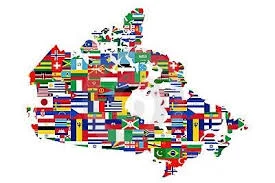More Than You Bargained For
/Why Olympic spending just isn’t really worth it.
As far as Olympics go, Pyeonchang wasn’t the worst. Despite featuring no official Russian delegation, right-wing protests against a prayer room for Muslim athletes and constant dread of nuclear war, it went alright overall. There was only one corruption scandal, and it didn’t go too far over budget. However, with the Olympics having come to a close we have to grapple with the important question of the day. Are the Olympics even worth it? Looking at both their economic and their social costs, as well as the swindling and corruption they foster, the answer can only be “no.”
Remember, the Olympics are funded by taxpayer money. Not once since 1968 have they been on-budget, and the spending is always counted in the billions. In fact, analysts point out that the Olympics tend to run 156% over budget – in other words, they cost almost three times as much as planned. The London Olympics were billed as a low-scale and efficient Olympics, but cost an (at that time record-shattering) 15 billion dollars. Since 1992, every Olympics has cost at least 2 billion dollars, and the monumental Sochi Olympics cost 21 billion dollars. Russia’s Olympic spending outstripped the GDP of most small countries.
The poster-child for Olympic overspending was surely the Montreal Olympics. The mayor of Montreal, Jean Drapeau, proudly announced that “the Olympics could no more go over budget than a man could have a baby” and vowed that these Olympics would be the first to finance themselves. The Olympics then cost eight times as much as the initial budget allowed, took 30 years to pay off, almost financially broke the City of Montreal, and – through their conspicuous corruption – might have been a factor in a rising wave of support for separatist politicians. The Athens Olympics similarly are often credited as the straw that broke the camel’s back for Greece, adding to a mountain of debt.
It’s modern economics. The rich get richer and the civilians foot the bill. Every time a city secures the Olympics, it receives a massive influx of government funding for construction, marketing, real estate development, financial services, staffing and post-games maintenance. This money is usually distributed quickly, and the gloss of the Olympics covers dirty dealings. In Montreal, most of the spending went directly into the hands of the city’s notorious construction companies and the Mafia dons. Union bosses deliberately kept construction sites in a state of chaos unless they got personal payoffs. In Sochi, much of the money went into the pockets of the big businessmen who had been asset-stripping the country since the fall of the USSR. The Pyeonchang Olympic bid is being investigated because Samsung may have shelled out significant bribe money to secure the bid, and Japanese marketing giant Dentsu used a Swiss bank to bribe IOC members knowing that the Olympics would bring significant wealth.
A lot of Olympic spending is justified as “development." Prominent Greek politicians – now out of a job – justified the Olympics as a way to get an updated airport and subways. Beijing used the Olympics as a catalyst for architectural renewal. Rio de Janeiro, the most ambitious, put forward a sweeping plan to use its Olympics as a way to transform the city for the better. But behind all this rhetoric is state-backed looting. Part of Rio’s Olympic plan involved clearing out the slums and re-housing the people in new locations, as well as tackling crime with social spending in keeping with the agenda of the ruling Worker’s Party. However, the Mayor of Rio, affiliated with the business-friendly Brazilian Democratic Movement, instead occupied the slums with militarized police and drove out the mostly black residents. The slums were demolished and high-income communities were built. Meanwhile the previous residents were relocated into other slums in eco-hazardous zones. None of the broader promises were delivered upon, but the business elite got even more elite with Olympic spending; spending that had little to do with the Olympics.
The Olympics also piggyback increasingly elaborate security theatre and political repression. Brazil’s Olympics came in the midst of mass protests. President Dilma Roussef had been ousted on spurious charges of corruption – by a Senate in which two thirds of the membership were under investigation for bribe-taking – and replaced by Michel Temer. Temer, whose popularity has since doubled to a whopping 6%, apparently took 3 million dollars from suspicious pork developers and is now trying to privatize significant parts of the state. He declared the Olympics open in a 14-word speech which was drowned out both by the jeering of the crowds and the samba music blasting to cover said jeering. Even as the Olympics were going on, vast police deployments were made against anti-Temer protests outside the stadium.
Other countries were no better. In London, it was discovered that the military was placing anti-aircraft missile launchers on the roofs of London to shoot at potential interlopers. In Greece, America and the UK forced the government to spend almost 1.5 billion (an eighth of the budget) on vast anti-terrorism measures. China ramped up state repression around the Olympics, drastically heightening internet censorship and anti-dissident actions. Russia, as usual, was a spectacularly bad offender. The Sochi Olympics outraged Chechen separatists who demanded that the games not be conducted on their ancestral lands. They likened the games to “dancing on the graves of our ancestors” and threatened to disrupt them. The Russian state responded by increasing repression of Chechnya, accomplished both through brutal deployments of the FSB and the aid of Chechen warlord Ramzan Kadyrov. Kadyrov has since grown famous for his love of Instagram, sports and torture camps. Western newspapers blithely commented that the Sochi Olympics would be the end of the Chechen problem. In a way, they were right.
The Olympics are fundamentally political theatre. Brazil first took on the Olympics to prove that a Latin American country in the developing world had reached political and economic maturity, meanwhile desperately trying to cover up the chaos outside the stadium. In 1980 and 1984, respectively, mass boycotts of the Olympics were organized by the Western powers over the Soviet war in Afghanistan and the Warsaw Pact over Western saber-rattling in Europe. The Pyeonchang Olympics were used by North Korea to drive a wedge between the South and the Americans, and international observers closely watched Mike Pence for signals that the United States would start a nuclear war in the Peninsula. Beijing’s Olympics were essentially an announcement that China was finally taking back its position as a world power.
Unsurprisingly, the Russians take the cake here. The media was tightly controlled by the Russian state, as was the narrative around the event. Its opening ceremony was interesting to watch for its political vision. It was an almost dizzying avant-garde rendering of a reactionary depiction of Russian history. With bizarre floating shapes, a shifting landscape pinned around rock-steady leader-figures and the reduction of broad concepts to narrow forms, it presented a highly coherent message. Russia, as depicted in the opening ceremony, was the product of a single continuous march to glory guided by strong men of vision and the Olympics seemed to be a milestone in this journey. This essentially summarizes Putin’s view of Russian history, and the methods used to present it are those perfected by the regime’s infamous “political technologists.” Sochi was an ideological product par excellence.
This all goes to show that the Olympics aren’t for ordinary people. That’s why the stands are almost always empty and they never make money back on ticket sales. They’re a tool which the rich use to get richer and which the great powers use to promote the narratives of their world-striding leaders. They’re closely politically stage-managed, even in Canada and the democracies. Despite being billed as expressions of global unity and beamed live to the entire world, still part and parcel of the global systems of financial and political power. For all their pretensions, what the Olympics boil down to is just another struggle for power and wealth. There might be potential for change, but as they are, the Olympics are just another mechanism for taking power and money away from ordinary people and redistributing it upwards. They just aren’t worth the cost.



















